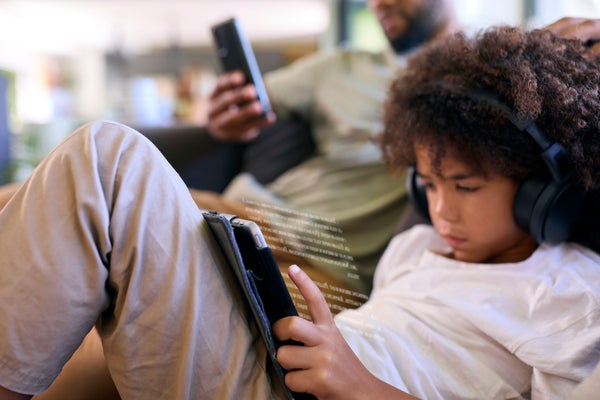Debating Screen Time? Here’s Why Reading Might Tip Your Scales
Digital books will never replace the tactile experience of paper books, but as part of bedtime reading and improving access to reading materials, they shouldn’t be counted as screen time
MBI/Alamy Stock Photo
Parents often wonder whether screen time is ok. A group of researchers are arguing that if it’s reading, then it is.
This piece is part of Scientific American’s column The Science of Parenting. To learn more, go here.
I get that parents worry about screen time. Children throw tantrums when their screens are taken away, and media reports highlight the downsides of excessive screen use. Certain countries now prohibit smartphones in schools.
But speaking as a researcher studying the effects of screen-based experiences, screens can be a great tool for reading. Digital books give children unique opportunities to learn and reinforce skills through literacy apps. To that end, I am one of many researchers in this field who believe that digital reading should not be considered screen time in the traditional sense. Digital books can be highly personalized and educational, and foster children’s creativity. They provide opportunities for families to bond. Digital books don’t replace print books; they expand access to stories and visuals.
On supporting science journalism
If you’re enjoying this article, consider supporting our award-winning journalism by subscribing. By purchasing a subscription you are helping to ensure the future of impactful stories about the discoveries and ideas shaping our world today.
Here are some things to consider as you explore effective strategies for budding readers and the productive use of tablets, computers or phones.
Little more than a decade ago, digital books were simple CD-ROMs. You moved the pages with a mouse on a stationary PC. Since then, digital books have evolved into highly interactive stories that can be read anywhere. Today’s young…
Read the full article here







